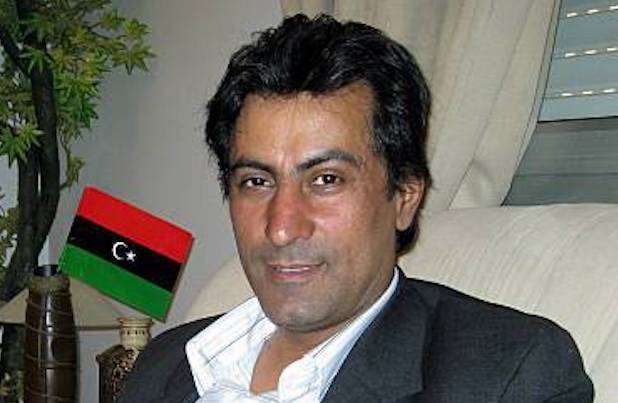Jebril El-Abidi: Libya in desperate need of stability

We have seen many calls for an end to interference in Libyan affairs, as well as many initiatives and attempts to restore stability to Libya. However, a serious and effective solution has yet to emerge. Most recently, we heard United Nations Secretary-General Antonio Guterres echo these demands, calling on “the countries intervening in Libya to stop interfering in its affairs.
A stable and peaceful Libya benefits everyone, and only the Libyan people should have a say in who leads them. There is nothing to justify the perpetuation of the current state of affairs in Libya.
“Libya’s wealth would indeed allow for its prosperity and make its surroundings more prosperous if its stability is enhanced.”
It is true that the stability of Libya, which is home to Africa’s largest oil and water reservoirs, would benefit its people and neighbors alike. Guterres is right: “A stable and peaceful Libya benefits everyone.” Libya’s wealth would indeed allow for its prosperity and make its surroundings more prosperous if its stability is enhanced.
However, this shared interest was undermined when NATO toppled the Libyan state rather than removing Gaddafi’s regime. The results were disastrous: chaos, the collapse of state institutions, the proliferation of weapons, and the spread of militias under foreign protection. This is not to suggest that Gaddafi’s rule amounted to a golden age- far from it. His regime impoverished Libya, prioritized personal interests and turned the state into his personal fief.
Today, we are seeing the beginning of efforts to restore the state and its authority in Libya, following the systematic chaos that has prevailed since 2011. This chaos was fueled by political Islamist groups that infiltrated the country through the 2012 elections, allowing those who had resided in the case of Tora Bora to move into the Rixos Hotel, the home of the General National Congress whose mandate had “finished.”

They refused to hand over power to the newly elected House of Representatives after failing to maintain a parliamentary majority that they had only won through lies and bribes in the first place. They were then emphatically defeated in the parliamentary elections, which led them to abandon democracy, as we have come to expect. They embrace elections when they win but resort to violence and weapons when they lose, as they did through the militias loyal to them.
READ: Libya is a boiling cauldron of drugs, arms and trafficking
The General National Congress was thus transformed into the High Council of State, which was composed of the same ideologically driven members, through the framework of the Skhirat Agreement signed in Morocco. This amounted to the establishment of a parallel body (the unelected High Council of State) that shared legislative power with the country’s elected parliament, in what was a political ploy orchestrated by the Muslim Brotherhood, masters of political deceit. This aggravated the Libyan crisis and plunged the country into political paralysis that continues to this day.
READ: Libya’s failed state meets climate change
The Libyan branch of the Muslim Brotherhood has been waging a relentless war against the army and military institutions since infiltrating power after February 2011, using the Transitional Council and the 2012 General National Congress as cover. During this period, the political Islamist movement- an alliance between the Brotherhood and the Libyan branch of al-Qaeda- seized control of the government, creating parallel military entities and banding militias into armed brigades, mirroring Lebanon’s Hezbollah and creating a Libyan version of the organization.
This article as originally published in Asharq Al-Awsat. The views expressed in this article belong to the author and do not necessarily reflect the editorial policy of Maghrebi.org. Dr. Jebril El-Abidi is a Libyan writer and researcher. If you wish to pitch an opinion piece please send your article to alisa.butterwick@maghrebi.org.
Want to chase the pulse of North Africa?
Subscribe to receive our FREE weekly PDF magazine














1 thought on “Jebril El-Abidi: Libya in desperate need of stability”